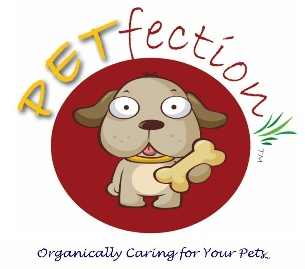Every day thousands of dogs are diagnosed with some form of kidney disease. With a diagnosis like this, your dog has to have a change in their daily diet, so we created this healthy, kidney-friendly, easy to make recipe for some fun "Pupsicles" for your dog to enjoy! Of course, please double check with your vet if you are unsure of any of these ingredients for your specific dog. And yes, these are yummy enough for all dogs to enjoy on a hot day so feel free to share with your other doggie friends!
Ingredients:
4 Baby Carrots
1/2 Apple cut into chunks
1/2 cup Blueberries
4.5 oz Plain Yogurt (full fat is best for dogs with kidney issues)
Directions:
Add all the ingredients to a blender. Add a little fresh water at a time and blend until consistency is smoothie like. Place your silicone molds onto a cookie sheet for easy transportation from the counter to freezer. Take your smoothie mixture and pour into silicone molds leaving a little space at the top. Once your molds are complete, then pop them in the freezer and freeze until your dog is ready to enjoy. Once ready to give, just pop the pupsicle out of the mold!
Note: There are tons of options for silicone molds out there. We used silicone cupcake liners (~3in diameter) and filled 5 of them. You can find something similar here. If you want smaller, 1 to 1 1/2in sized treats, check out these cute bone and paw print shaped ones.

Reading the labels on your pet's food is a great habit to get into. Scanning the ingredient list can tell you a lot about what your pet is consuming, but one thing it can't tell you is the amount of Carbohydrates. Carbs are the sugars and starches that make up a food and are the energy source your pet needs.
Everyone knows eating too many carbs can lead to weight gain in people. The same is true for pets. When you read your pet’s food bag you will see a percentage breakdown of protein, fat, fiber, minerals (sometimes called Ash) and moisture, but no Carbs!
The importance of knowing the percentage of carbs in your pet’s food is to help stave off further weight gain in overweight pets, help prevent obesity in pets naturally prone to it (for example pugs, bulldogs, and beagles), and help decrease the risk of diabetes. With a lower percentage of carbs in your pet’s food, your pet can lose body fat and become less insulin resistant. So if you have a pudgy pooch, chubby cat, or diabetic prone pet, definitely pay close attention! We are going to show you how to figure out the percentage of carbohydrates in your pets food.
For example purposes, here is a breakdown of percentages off a bag of dry dog food:
Crude Protein – 24%
Crude Fat – 15%
Crude Fiber – 4%
Moisture – 10%
*Minerals/Ash generally constitute for about 8% of food weight.
If you look at the percentage breakdown of protein, fat, fiber, minerals, and moisture on the bag, you can add them all up and see they won’t equal 100%. This is because of the moisture content. Having 10% moisture in food means the bag actually contains 90% food. To figure out the “correct” percentages of protein, fat, and fiber, you have to divide each of the percentages on our example bag by 90%.
In our case Protein is: 24% divided by 90%, which is 26.6% of protein weight
Fat is: 15% divided by 90%, which is 16.6% of fat weight
Fiber is 4% divided by 90%, which is 4.4% of fiber weight
Now that we have your correct percentages, we can calculate Carbs!!
Carbohydrates = 100% - Protein – Fat – Fiber – Minerals/Ash
In our example, Carbohydrates = 100% - 26.6% - 16.6% - 4.4% - 8%
Carbohydrates = 44.4%
You can do this calculation with multiple brands of pet food until you get a low carb percentage. Go ahead and pull out your pet’s food bag! Do the calculation and see how low the carb percentage is. 30% is usually the lowest you’ll find in a dry food.
If you still have questions or have a hard time calculating the carbs in your pet's food, please contact us and we'll be happy to help!

